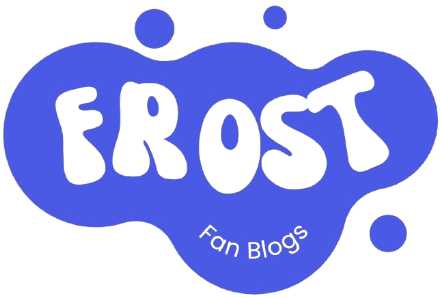In the digital world, domain names are the first point of contact between a website and its audience. Among the countless top-level domains (TLDs) available today, .ydesi stands out as a relatively new and culturally distinct option. In this article, we will explore what .ydesi is, its origins, potential use cases, competitors, and recommendations for those interested in this unique domain extension.
What is .ydesi?
A top-level domain (TLD) is the last segment of a domain name, appearing after the dot, such as .com, .org, or .net. The .ydesi TLD is part of a growing trend of niche domain extensions designed to represent specific communities or interests.
The term Desi refers broadly to people and culture originating from South Asia, including India, Pakistan, and Bangladesh. By extension, .ydesi is intended to appeal to websites that aim to connect with South Asian audiences, whether for cultural, educational, or community-focused content.
Unlike traditional TLDs like .com or .net, which are globally recognized but generic, .ydesi allows websites to communicate a clear cultural identity right from their domain name.
Origins and Background of .ydesi
The .ydesi domain emerged from the increasing popularity of culturally specific TLDs. With the expansion of the Internet, there was a recognized need for domain names that reflect specific communities, interests, or industries. .ydesi serves this purpose for the South Asian community globally, including those living in the United States.
It is important to note that .ydesi is not restricted to people of South Asian origin. Anyone interested in creating content related to South Asian culture, cuisine, traditions, or communities can register a .ydesi domain.
Potential Uses of .ydesi
While .ydesi is often associated with cultural identity, its use is not limited to personal blogs or community websites. Potential applications include:
- Educational websites: Articles or content about South Asian history, languages, or traditions.
- Cultural initiatives: Non-profits or community projects promoting cultural awareness.
- Content hubs: Sites that aggregate news, recipes, or other resources relevant to South Asian communities.
The key is to create relevant and informative content, which aligns with Google’s best practices. Domains like .ydesi can help signal to users and search engines the thematic focus of a site.
Competitors and Alternative Domains
When considering .ydesi, it is useful to look at other TLDs targeting similar audiences:
- .in – India’s country code TLD, widely used by businesses and individuals.
- .co – Popular globally and sometimes used by startups targeting niche communities.
- .asia – Designed for websites targeting the broader Asian community, including South Asia.
- .desi – Another culturally focused TLD, very similar in purpose to .ydesi.
Each of these TLDs has its own advantages. For instance, .desi has been around longer and may already have recognition among users familiar with South Asian content online. .ydesi, being newer, provides opportunities to secure unique names that may be unavailable on other TLDs.
SEO Considerations for .ydesi
One of the most common concerns when using a non-traditional TLD is how Google treats it. According to Google’s official guidelines:
- TLD choice does not affect SEO directly. Google ranks content primarily based on relevance, quality, and user experience, not the domain extension.
- A .ydesi domain is treated like any other generic TLD. There is no inherent penalty for using it.
- Proper optimization, including natural keyword placement, high-quality content, meta tags, and mobile-friendly design, remains crucial.
In other words, using .ydesi will not give you an SEO advantage on its own. Still, it can help your audience immediately understand your website’s focus, which can indirectly improve engagement and trust.
Pros and Cons of Using .ydesi
Understanding the advantages and limitations of .ydesi can help in making an informed decision:
Pros:
- Strong cultural identity and branding potential.
- High availability of domain names compared to traditional TLDs like .com.
- Flexible usage for blogs, community projects, or educational websites.
Cons:
- Less recognition compared to traditional TLDs like .com or .org.
- Slight learning curve for audiences unfamiliar with the extension.
- Competitors like .desi may already have an established presence in certain niches.
Recommendations for Using .ydesi
If you are considering a .ydesi domain, here are some practical tips:
- Focus on quality content: Google rewards websites that provide value to users, regardless of TLD. Prioritize educational or informative content related to South Asian culture.
- Research competitors: Explore existing .desi or .ydesi websites to identify gaps in content or audience needs. This helps in positioning your website effectively.
- Please keep it simple and memorable: Choose a domain name that is easy to spell and remember. A clear name enhances credibility and trust.
- Follow SEO best practices: Use keywords naturally, optimize meta tags, and ensure mobile-friendly design.
- Avoid promotional bias: Since .ydesi is culturally focused, maintain a neutral tone and avoid overt marketing, which can reduce credibility.
Conclusion
The .ydesi domain extension is an exciting option for anyone looking to connect with the South Asian community online. It offers a unique way to signal cultural identity while providing flexibility for blogs, educational websites, or community projects. While it competes with other TLDs like .desi, .in, and .asia, it can be an effective choice for those seeking a distinctive online presence. Ultimately, the success of a .ydesi website depends less on the TLD itself and more on high-quality content, clear audience targeting, and ethical web practices. By following Google’s best practices and focusing on informative content, A.Ydesi’s website can achieve both credibility and reach in the USA and globally.





